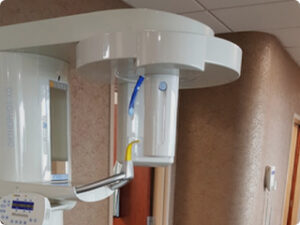To overcome tooth sensitivity, follow dentist-recommended strategies. Start by understanding the causes like enamel erosion from acidic foods. Adopt proper oral hygiene with a soft toothbrush and gentle circular motions. Avoid acidic foods; opt for low-acid options like bananas. Consider desensitizing toothpaste for relief by numbing nerve endings. For professional help, try fluoride treatments or dental sealants. Seeking targeted dental care can ease sensitivity and boost oral health. Further tips are available that can enhance your journey to a discomfort-free smile.
Key Takeaways
- Protect enamel with proper oral hygiene and diet to prevent sensitivity.
- Use desensitizing toothpaste consistently for relief and prevention.
- Avoid acidic foods and drinks that erode enamel.
- Seek professional dental treatments like fluoride applications and sealants.
- Consult with your dentist for targeted solutions to reduce sensitivity.
Understanding Tooth Sensitivity Causes
Understanding the causes of tooth sensitivity can help you pinpoint the triggers and take necessary steps to alleviate discomfort. Preventing enamel erosion is essential in avoiding tooth sensitivity. Enamel erosion occurs due to acidic foods, beverages, or medical conditions that weaken the protective layer of your teeth. When the enamel wears away, it exposes the underlying dentin, which contains microscopic tubules leading to the nerve of the tooth. Understanding nerve exposure is key to comprehending why certain stimuli cause you pain. When the dentin is exposed, hot or cold foods and drinks, sweet or acidic substances, and even cold air can trigger sensitivity. By protecting your enamel through proper oral hygiene and dietary choices, you can prevent nerve exposure and minimize tooth sensitivity. Maintaining a healthy smile involves being mindful of what you eat and drink to safeguard your enamel and prevent discomfort.
Adopting Proper Oral Hygiene Practices
To maintain good oral health, it is essential to adopt proper oral hygiene practices. Brushing techniques and dietary changes play an important role in preventing tooth sensitivity. When brushing your teeth, make sure to use a soft-bristled toothbrush and gentle circular motions to avoid damaging your enamel. Remember to brush at least twice a day and after consuming acidic or sugary foods. Flossing daily helps remove food particles and plaque from between your teeth, reducing the risk of sensitivity. Additionally, consider incorporating mouthwash into your routine to further protect against sensitivity and maintain overall oral health.
| Brushing Techniques | Dietary Changes |
|---|---|
| – Use a soft-bristled toothbrush<br>- Brush gently in circular motions<br>- Brush at least twice a day<br>- Floss daily<br>- Use mouthwash | – Limit acidic and sugary foods<br>- Drink water after eating<br>- Consume calcium-rich foods<br>- Avoid excessive teeth grinding<br>- Quit smoking |
Avoiding Acidic Foods and Drinks
To reduce tooth sensitivity, start by cutting back on acidic foods and drinks that can wear down your enamel. Making dietary adjustments and lifestyle changes can help protect your teeth from further damage and alleviate sensitivity. Acidic foods like citrus fruits, tomatoes, and sodas can weaken the enamel, making your teeth more sensitive to hot, cold, and sweet foods.
Opt for less acidic alternatives like bananas, melons, and water to keep your enamel strong. Read labels and choose low-acid or pH-neutral options when possible. Avoid sugary and acidic beverages like fruit juices and energy drinks that can erode your enamel over time.
Incorporating these changes into your daily routine can make a significant difference in reducing tooth sensitivity. Remember, prevention is key in maintaining oral health. By being mindful of what you consume and making simple adjustments, you can protect your enamel and enjoy a healthier, more comfortable smile.
Considering Desensitizing Toothpaste
Consider a desensitizing toothpaste to help alleviate tooth sensitivity and protect your enamel. These toothpastes are specifically formulated to provide relief from sensitivity by blocking the transmission of sensation from the tooth surface to the nerve. They work by either numbing the nerve endings or creating a protective barrier over the sensitive areas of your teeth.
Here’s a quick comparison table to help you understand the benefits of desensitizing toothpaste:
| Desensitizing Toothpaste Benefits | Description | Example |
|---|---|---|
| Sensitivity prevention | Helps prevent pain from cold, heat, or touch stimuli that can cause discomfort. | Potassium nitrate toothpaste |
| Toothpaste effectiveness | Effectively blocks the open tubules in the dentin and provides relief from sensitivity. | Strontium chloride toothpaste |
Choosing a desensitizing toothpaste can be a simple and effective way to manage tooth sensitivity in your daily oral care routine. Remember to use it consistently for best results in reducing discomfort and protecting your enamel.
Seeking Professional Dental Treatments
When seeking relief for tooth sensitivity, professional dental treatments can provide effective solutions tailored to your specific needs. Here are some ways professional dental treatments can help in managing tooth sensitivity:
- Fluoride Treatments: Dentists can apply fluoride to your teeth to help strengthen the enamel and reduce sensitivity.
- Desensitizing Agents: Dental procedures such as applying desensitizing agents can help block the transmission of sensation from the tooth surface to the nerve.
- Dental Sealants: Sealants can be used to cover exposed root surfaces or areas of worn enamel, providing a barrier against sensitivity triggers.
Seeking professional dental treatments for sensitivity management can offer targeted solutions that address the root cause of your discomfort. By consulting with your dentist and exploring these treatment options, you can work towards reducing tooth sensitivity and improving your overall oral health.





